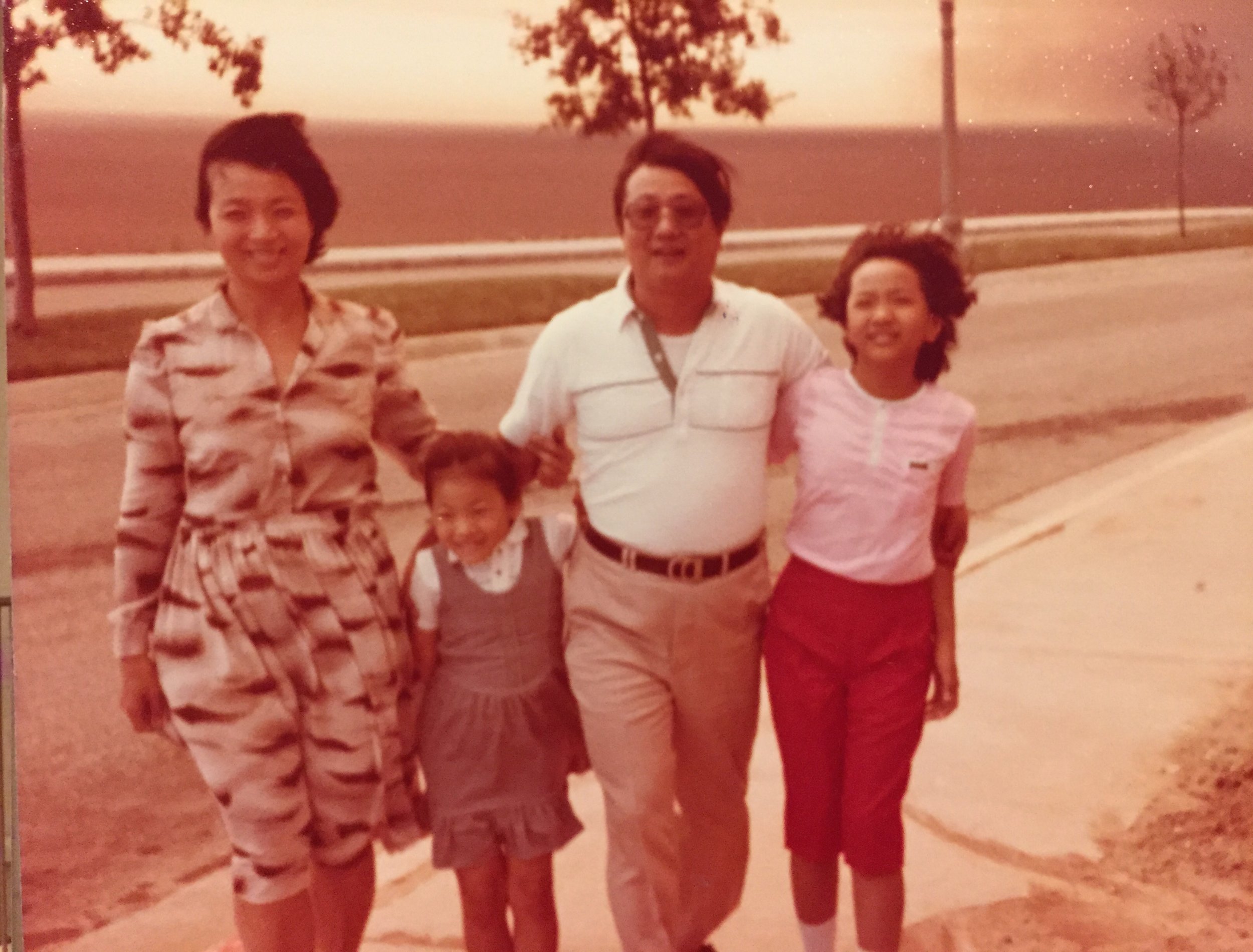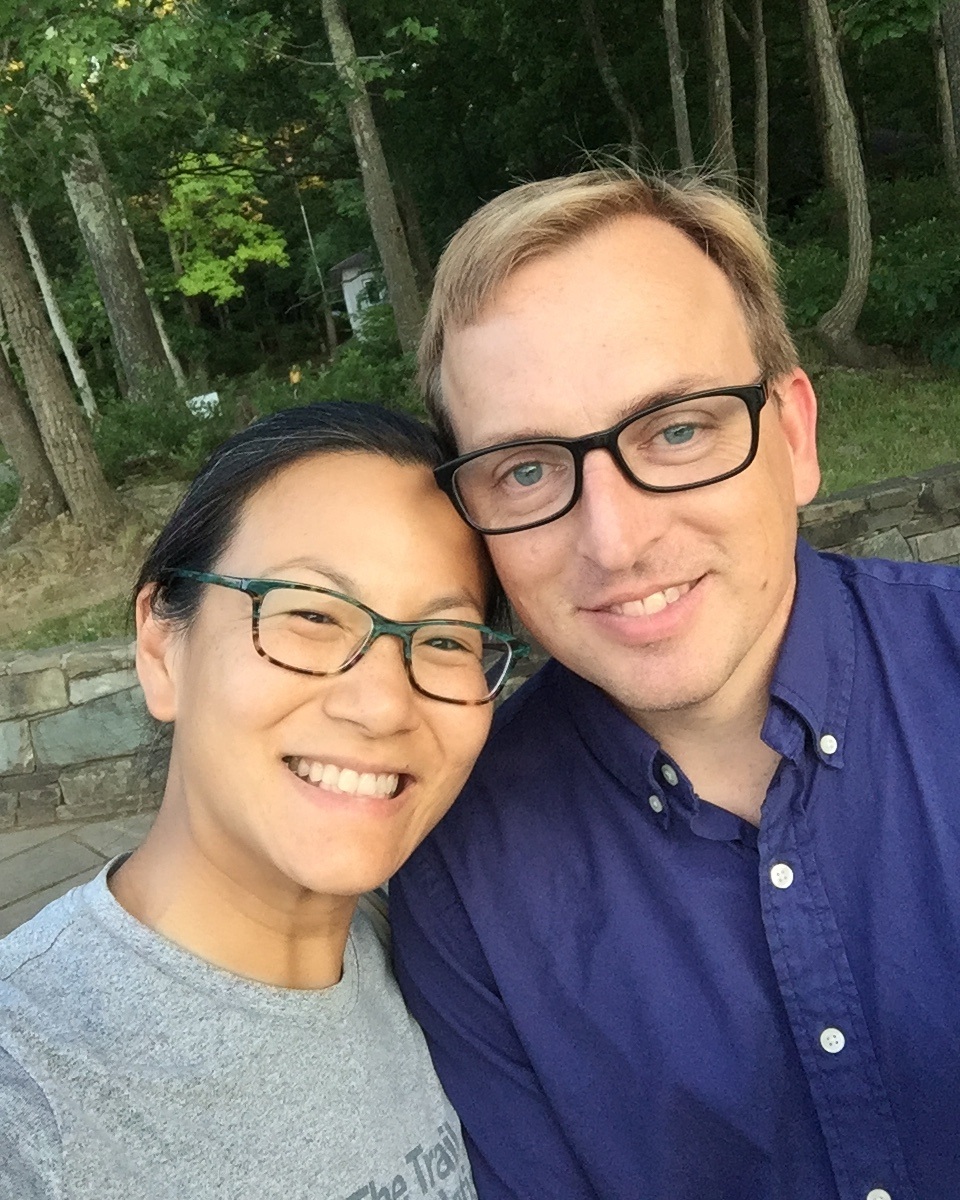Why have you forsaken me?: Eva Chou [Retrieve Lament 2019]
Jesus gave us a litany of last words as a Sufferer; we refer to them as the Seven Last Words of Christ. The deathbed words of the Suffering Servant provide a framework for the stories of lament we share here this Holy Week.
I count it a high privilege to know -- at least in a small part -- the writers of the mourning stories I'll be sharing here during Holy Week. Their lives walk the path of celebration, yes, but also suffering -- illness, relational disillusionment, anxiety, joblessness, the death of loved ones, and the death of dearly-held dreams. Their stories have helped form me in my understanding of suffering and I believe they could also encourage you too.
Our friend, Eva, contributed today’s lament. She is another friend we met in Austin and is now living in the north(ish)-east. Eva’s the friend you want to meet and fall in love with and marry your other dear friend because together they make up such a beautiful story of God’s goodness. She’s the kind of person who is smarter and stronger than most anyone in the room, but won’t be standing around talking about it because she’ll be in the kitchen slicing pears or gourmet cheese or some other interesting, delicious food she’s brought to the party. I’m grateful I was able to meet Eva’s dad at her wedding a few years ago, and mourn his loss. Eva is a good daughter, sister, aunt, friend, and wife. I’m delighted you get to meet her here today.
Would you read Eva's story with me, and listen with an open heart for any words Christ might be speaking to you?
Arcabas
“From noon on, darkness came over the whole land until three in the afternoon. And about three o’clock Jesus cried with a loud voice, ‘Eli, Eli, lema sabachthani?’ that is, ‘My God, my God, why have you forsaken me?’”
Do not lose heart
by Eva Chou
At the age of 42, I became an orphan. I had lost my mother in September 2010, and in October 2018, I lost my father to an unexpected, precipitated progression of his illness. Several months ago, I found out that my father was critically ill between surgical cases. My phone rang incessantly with messages during surgery: “Your dad is in the ICU and on the verge of death.” As most physicians are taught to do, I put a barrier between my personal and professional life and finished the task at hand. After completing my last surgery, I received permission for emergency travel from my command (as all military members must), handed-off of my patients to my colleagues, and hopped on a plane with Jeff the next morning to Taiwan, where my parents had moved back to after I went off to college. In the states, I am comfortable navigating the medical system and have the inside advantage of being embedded within; in Taiwan, I am just a family member who speaks broken Chinese without any insight into their medical system. And here I was, put in charge of making medical decisions with the help of Google Translate.
Almost exactly eight years before, I received a similar message from my father who relayed that my mother was losing her battle with cancer. That day, I hopped on a plane from DC to Taiwan to help transition her to hospice. Hers was an honorable and long fight with a cancer that almost nobody wins. On Halloween day 2017, in the midst of my residency, I found out about her diagnosis in the midst of a busy clinic day: “Call me. Mom has pancreatic cancer.” In the years to follow, I made the trip from Boston to Taiwan every three months to spend time with my mother during each vacation week. We spoke on the phone twice a day, typically on the way to and from work. We read the Bible together, prayed for each other, and many times sat in stillness together. Through these ordinary times, I knew with certainty that God’s hand was guiding her journey of life and illness. I have to admit that, although she and many in my family had faith that she would be completely healed, as a physician I was unable to fully embrace this belief. However, the fact that she survived for three years (vs. the 4-6 month prognosis that she was initially given) was an absolute gift from the Lord. Although it was heartbreaking to see her suffer, I would not give back the richness of those years for decades of a lesser relationship.
With my dad, the situation was certainly different. In the past several years, he had been diagnosed with myasthenia gravis, an autoimmune condition which typically starts with drooping of the eyelids (ironically, my surgical specialty). In 50% of people, the disease progresses to generalized muscle weakness, and, in its most advanced state, affects the ability to swallow and breathe. Often times the treatment is as bad as the disease. As a stereotypical stubborn, old, pain-adverse, male doctor, he chose not to take the medication that could have prevented the progression of his condition and extend his life. While he was hospitalized in the ICU, Jeff and I started to clean and organize his house, which was mostly unchanged since my mother passed. When we were cleaning out his medicine cabinet, we found months of unused medication. I was angry because I felt that he didn’t have to experience the very advanced stages of his disease or to suffer in the way he did. And yet, in hindsight, I realize that this was in God’s perfect plan. My dad would not have tolerated years of debilitation and non-independent living; for him, death was the kinder option.
As I was reflecting on this post, I re-read many of the blogs I wrote during my mother’s illness. My mother was the first person in the family to become a Christian. She became a believer before marrying my father, who came from generations of Christian faith. Her faith grew remarkably as her body was tested by disease. After her initial surgery, she spent 40 days without any food or water – we saw in this the similarity of Jesus’ journey in the wilderness. As Jesus exited the wilderness, he was primed for his three years of ministry – those years were by no means easy and proceeded with an end goal of crucifixion, death, and resurrection.
We were reminded to “be joyful in hope, patient in affliction, faithful in prayer (Romans 12.12). Our prayers often mirrored those in the Psalms: “I call on you, O God, for you will answer me; give ear to me and hear my prayer. Show the wonder of your great love, you who save by your right hand those who take refuge in you from their foes. Keep me as the apple of your eye; hide me in the shadow of your wings.” (Psalm 17.6-8) Days before my mother’s death, I wrote: “Please pray that we will not lose heart.” One often loses heart in the grief of dying parents. I still continue to grieve and know that this will be a lifelong process. Photographs, memories, the lament of my nephew not having grandparents around for most of his life – these are all losses that I weep over. I am thankful for this long grieving period as well. It means that my parents meant so much to me that I will continue to grieve them for the rest of my own days. As our last several years of church community have been transitory, I find that I have found the most solace in the least expected of places, from my own patients. Many have reached out to me and loved me as one of their own. They have prayed for me, written letters and emails, and sat and listened as they asked and I shared about these experiences. They have been a balm to my soul.
“But we have this treasure in jars of clay, to show that the surpassing power belongs to God and not to us. We are afflicted in every way, but not crushed; perplexed, but not driven to despair; persecuted, but not forsaken; struck down, but not destroyed; always carrying in the body the death of Jesus, so that the life of Jesus may also be manifested in our bodies. For we who live are always being given over to death for Jesus’ sake, so that the life of Jesus also may be manifested in our mortal flesh. So death is at work in us, but life in you… So we do not lose heart. Though our outer self is wasting away, our inner self is being renewed day by day. For in this light momentary affliction is preparing for us an eternal weight of glory beyond all comparison, as we look not to the things that are seen but to the things that are unseen. For the things that are seen are transient, but the things that are unseen are eternal.”
- 2 Corinthians 4.7-11,16-18
Pray:
“Lord God, whose blessed Son our Savior gave his body to be whipped and his face to be spit upon: Give us grace to accept joyfully the sufferings of the present time, confident of the glory that shall be revealed; through Jesus Christ your Son our Lord, who lives and reigns with you and the Holy Spirit, one God, for ever and ever. Amen.”
Eva is the younger of two sisters raised by immigrant parents in Southern California. Her childhood home was always full of guests, food, and activity. When she left the nest for college in Berkeley, her parents permanently relocated back to Taiwan, although the family remained close with the help of long-distance phone calls and transcontinental flights. She moved to Boston after college to work and ended up staying for 13 years, becoming a de facto Red Sox and Patriots fan. Her first job as a Navy ophthalmologist took her to the DC area. An opportunity for fellowship followed in Austin, TX, where she met and married Jeff, her nicer half. They settled back to the DC area where she continues her work at Walter Reed National Military Medical Center.
“Once, ritual lament would have been chanted; women would have been paid to beat their breasts and howl for you all night, when all is silent. / Where can we find such customs now? So many have long since disappeared or been disowned. /
That’s what you had to come for: to retrieve the lament that we omitted.”
(See all of the Retrieve Lament stories from this year here.)



